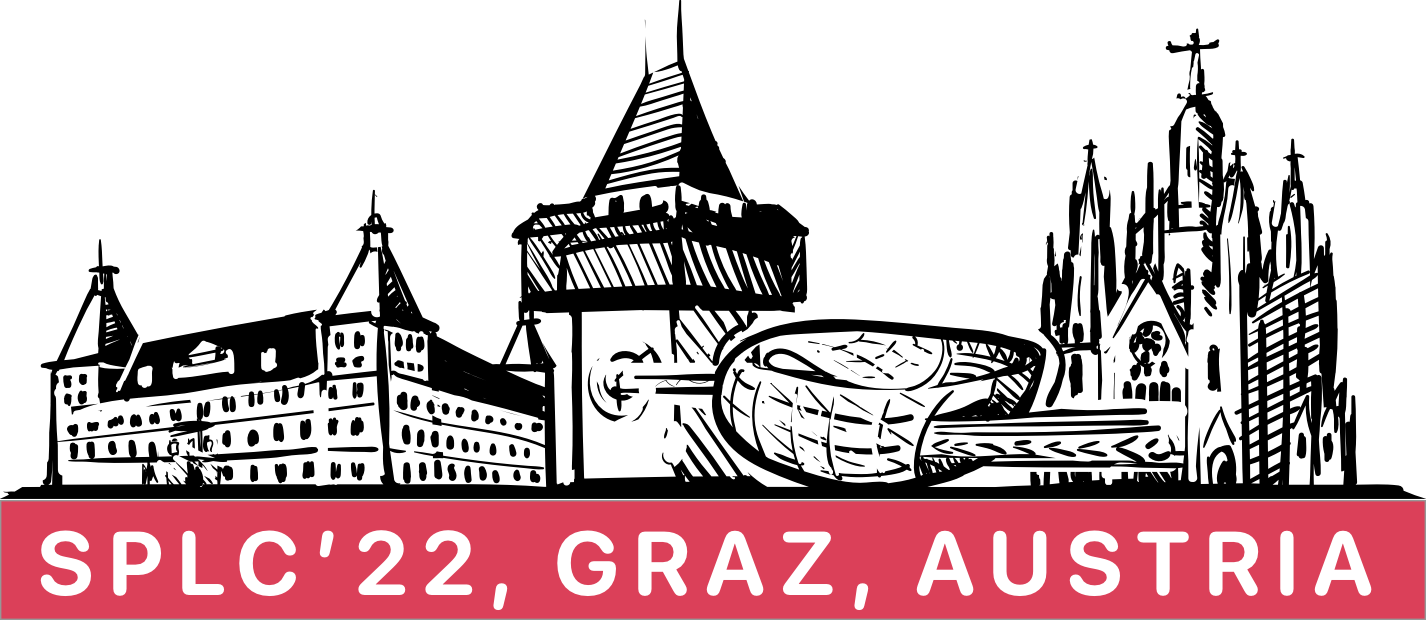Tomi Männistö
(University of Helsinki)

Keynote title: Software product lines and knowledge-based configuration – looking for synergies
Keynote abstract: Two approaches to variability management, software product lines and knowledge-based configuration of mechanical products, have a history of their own. There have been various cross-fertilisations over the years, but many approaches used are still distinctly different. In this keynote targeted at the SPLC audience, I will look at synergies potentially fruitful for further research and collaboration. The talk relies heavily on the fundamentals in the conceptualisations used for addressing variability. I will particularly look at the beginnings of knowledge-based configuration and how some ideas evolved there to consider how they could be mapped to software product lines or identify whether there are fundamental reasons for particular distinctions. However, traditionally mechanical products are currently increasingly software products, with much of the added value coming from software and their variability implemented as a combination of hardware, software and services. Consequently, continuing and extending the work for utilising the synergy potential also stemming from software variability management is essential.
Bio: Tomi Männistö, DSc (Tech), is a full professor of computer science (software engineering) at the University of Helsinki. He received his PhD on the evolution of configurable products and their models at the Helsinki University of Technology, currently Aalto University. His research interests include software product lines, knowledge-based configuration, software architecture, requirements engineering, and conceptual modelling. He has a robust configuration research background, from the early 1990s, particularly in conceptual modelling and ontologies. Currently, his team is working, e.g., on the software engineering paradigm of extreme continuous experimentation and the creative and adaptive cooperation between diverse autonomous robots. His activities include being the chair of IFIP WG2.10 Software Architecture, the general chair of the joint WICSA/ECSA conference and PROFES conference, and PC co-chair of ESEM 2022. He is a co-founder of Variantum Ltd, a spin-off company offering solutions for configurable products.
Myra Cohen
(Iowa State University)

Keynote title: Stretching the Boundaries of Software Product Line Engineering
Keynote abstract: Software product line engineering has become a best practice for modeling, configuring, testing, and maintaining configurable software. It provides reasoned approaches to measure software quality from the top down and allows engineers to identify problems that impact entire slices of a family of products at once. However, as configurability has become almost ubiquitous in all types of software, handling its complexity remains a challenge. This may be due to the sheer size of the configuration spaces, a lack of specifications for features, or the need to bridge domain-specific knowledge gaps. But it also suggests there is an exciting opportunity ahead for our community to build solutions for many emerging challenges. In this talk I will discuss a few examples where we have stretched the boundaries of software product line engineering such as our research on failure avoidance, assuring surgical robots and our foray into organic software product lines. I will end with some ideas for the next generation of software product line engineering.
Bio: Myra Cohen is a Professor in the Department of Computer Science at Iowa State University, and the Lanh & Oanh Nguyen Endowed Chair of Software Engineering. Her research interests are in software testing of highly-configurable software and software product lines, search-based software engineering, applications of combinatorial designs, and synergies between systems and synthetic biology, and software engineering. She received her Ph.D. from the University of Auckland, New Zealand, and was the recipient of an NSF CAREER award, an AFOSR Young Investigator Award, and has received 4 ACM distinguished paper awards. She is an ACM Distinguished Scientist and serves on the steering committee of the IEEE/ACM International Conference on Automated Software Engineering, ESEC/FSE, the International Conference on Software Testing and the Systems and Software Product Line Conference and is active in other software engineering conference organizational roles. She was the program co-chair for ESEC/FSE 2020 and ICST 2019 and the general chair of Automated Software Engineering in 2015.
Stéphane Vayssier
(Siemens Digital Industries Software, France)

Keynote title: Agile Engineering
Keynote abstract: “Harder, Better, Faster, Stronger” is a well-known Daft Punk song but also trends that have introduced or increased the challenges faced by engineering teams. Key challenges that are making product engineering critical to remain competitive in today’s industry market are innovation, competitive pressure and customized products. This involves being able to engineer and maintain complex product lines made of cyberphysical products. This presentation will explain how Siemens Digital Industries solutions help companies address those challenges, from Product Engineering using MBSE techniques to Software Development using Low Code platform and Manufacturing to achieve Agile Engineering.
Bio: Stéphane Vayssier is an Application Engineer for Polarion, Siemens Digital Industries Software solution for Application Lifecycle Management (ALM). He holds an Engineering Degree in Embedded Software development but quickly shifted to Model Based Systems and Software Engineering (MBSE). For the last 10 years, Stéphane helped aerospace, automotive, medical and railway, companies in their selection of tools to achieve their digitalization goals.
